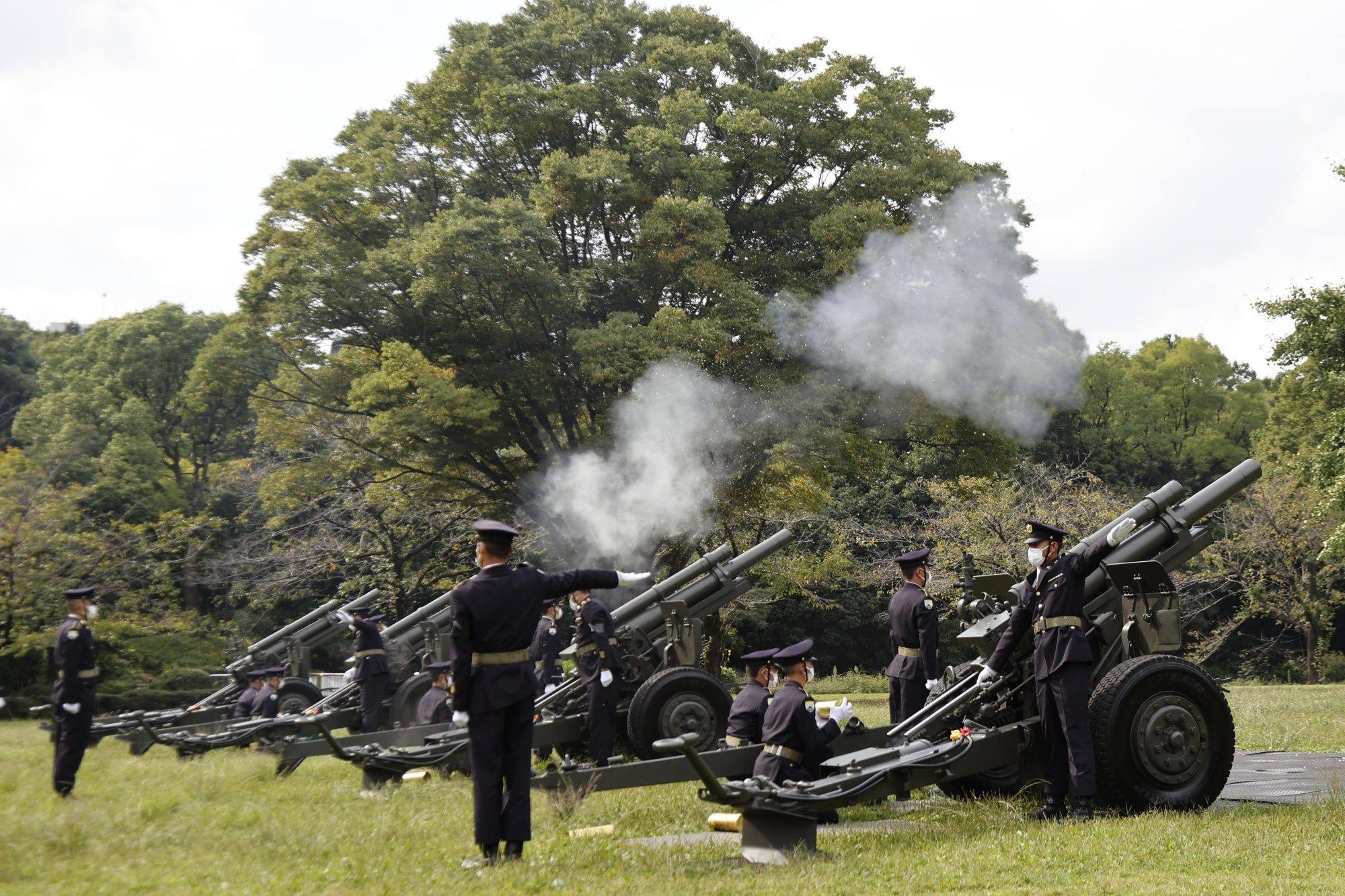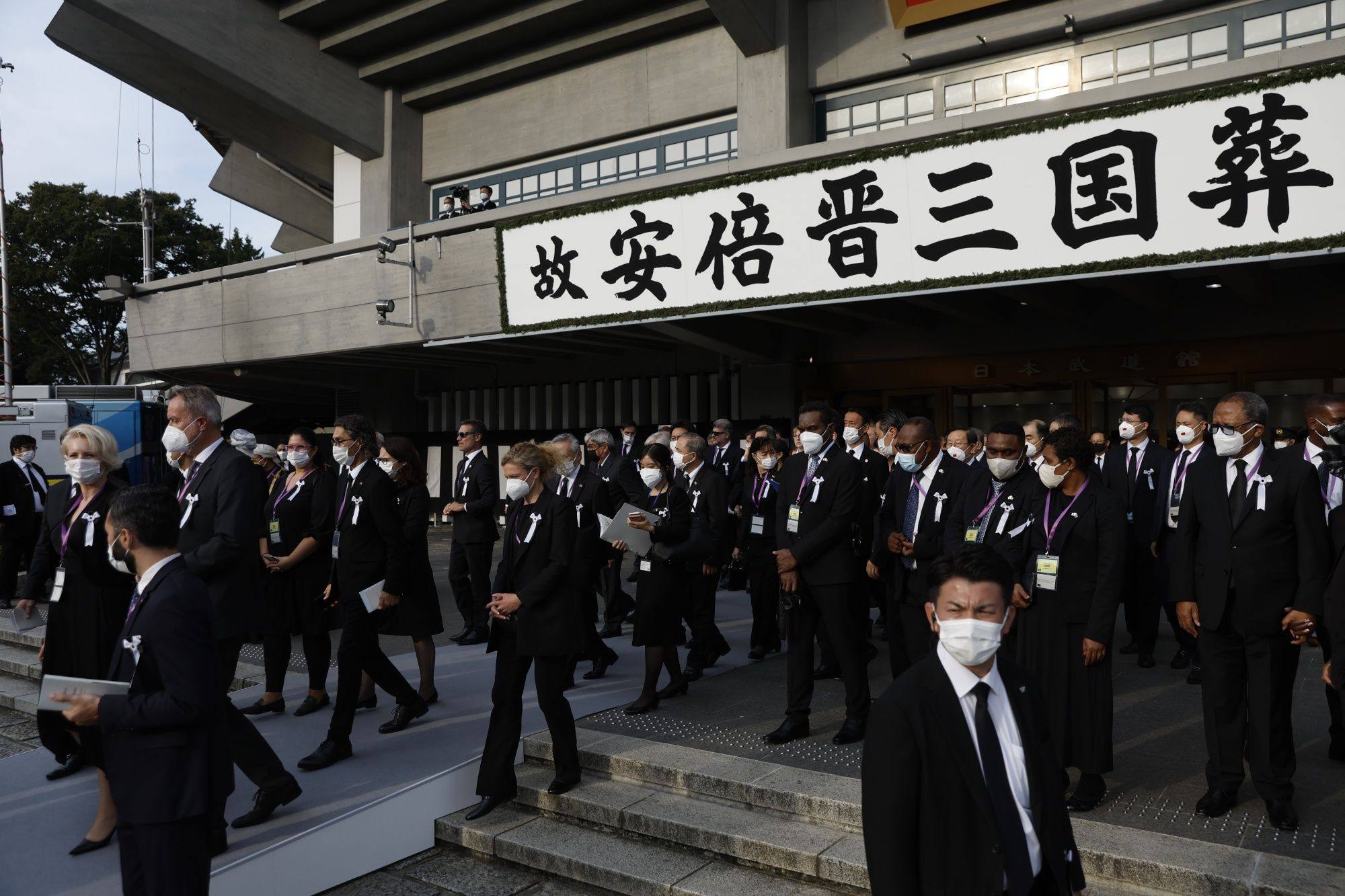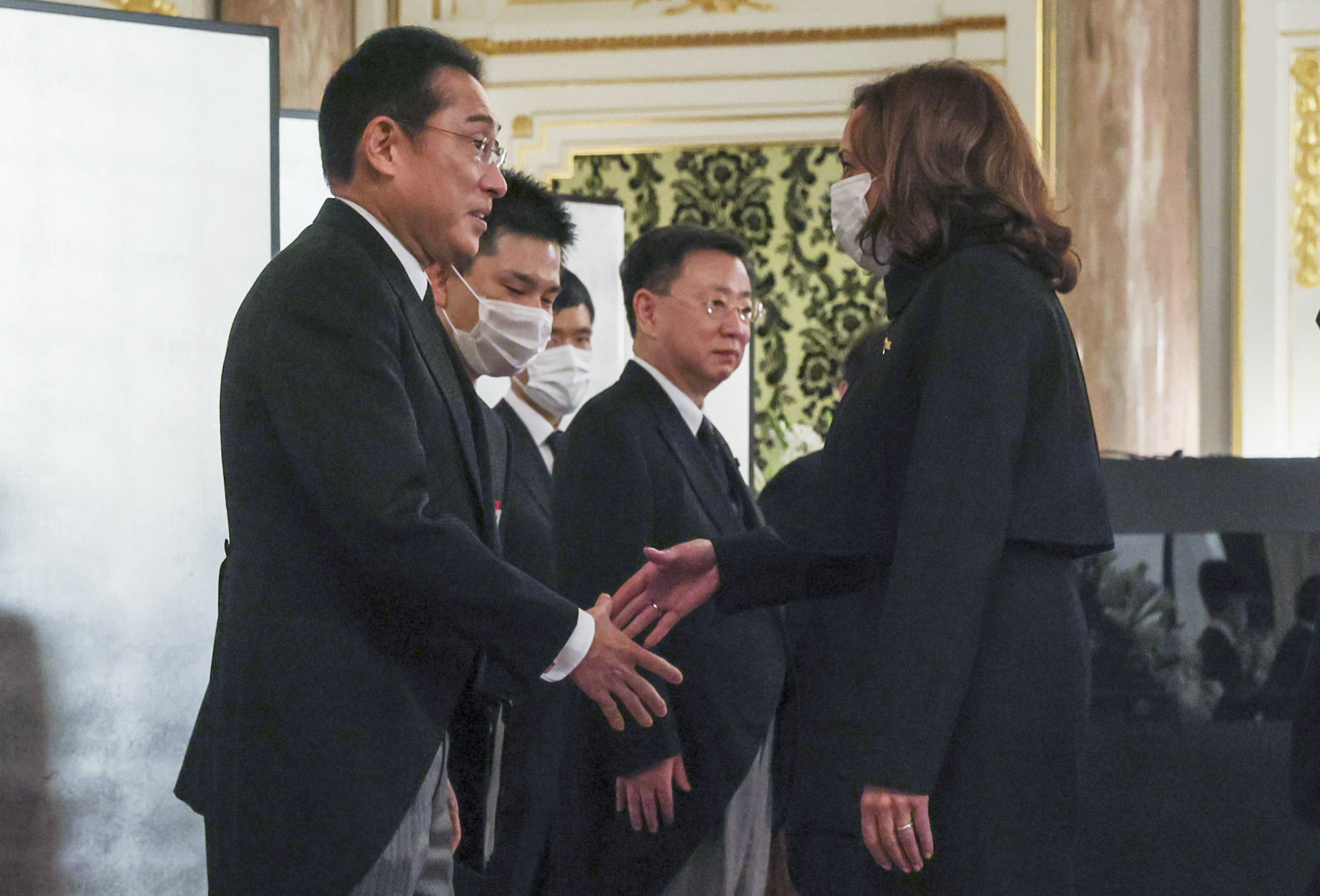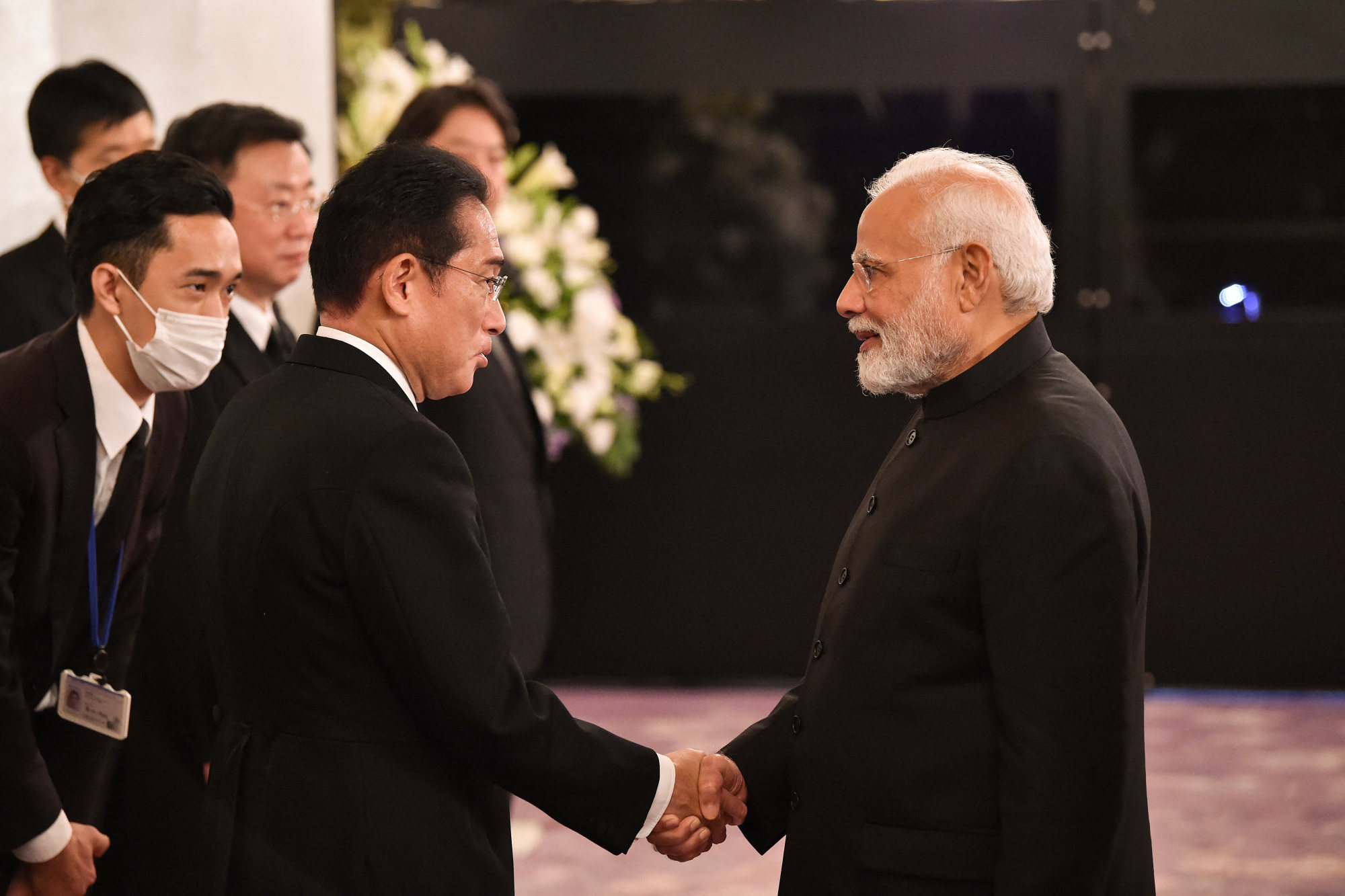
Shinzo Abe’s funeral unpopular in Japan but may deepen regional ties: analysts
- The former PM wasn’t well-liked at home and the US$11.5 million send-off has sparked public anger, but many foreign leaders attended his state funeral
- The legacy of the staunch US ally includes his vision of a free and open Indo-Pacific, which aims to ‘put a check on China’s ambitions’ in the region
With 4,300 guests including representatives from more than 100 countries, many diplomatic meetings would be taking place on the sidelines, said Nancy Snow, distinguished visiting professor of strategic communications at Tsinghua University’s Schwarzman College in Beijing.
“(Today) is an important event to mourn Abe’s passing and acknowledge his ability in raising Japan’s global profile,” she said.
The ceremony started at 2pm, with Abe’s ashes carried into the Nippon Budokan hall in central Tokyo by his widow Akie, to music from a military band and the booms of the honour-guard salute, which echoed inside the building.
Within hours about 10,000 people had laid flowers, television pictures showed, with more waiting in three-hour-long queues.
However, in another part of downtown Tokyo, protesters waved signs and chanted “no state funeral” to the tune of a guitar.

A recent Yomiuri newspaper survey showed 56 per cent of respondents said they opposed a state funeral for him. Many were angry that taxpayers would have to foot the bill.
Japanese people have also expressed dissatisfaction with the ruling LDP after its ties to the church came to light following the assassination.
Abe’s killing spotlights South Korea’s Unification Church ties with Japan
But Abe has been widely described as having done more to raise his country’s profile and international presence than perhaps any Japanese leader since the second world war.
The leader strengthened strategic partnerships with India, Vietnam, Britain, the European Union and other powers, and also upgraded Japan’s defence capabilities.
Abe also proposed the Quad (Quadrilateral Security Dialogue) as a regional security forum in 2007 and played a prominent role in reinvigorating it, with the US, Australia and India.

“(Abe’s) key ideas now characterise the foreign policy approaches of many countries in the Indo-Pacific region,” Nagy said, adding that Japan’s leadership within the region would continue to be critical to constraining China’s assertive behaviour.
Noting that Japan seeks engagement, peace and prosperity through a rules-based process as championed by Abe, Nagy said his legacy would now be left to his followers to translate “into reality through cooperation with like-minded countries”.

Yoichiro Sato, an international relations professor at Japan’s Ritsumeikan Asia Pacific University, said that while foreign observers credit Abe’s foreign policies, his domestic policies were often unpopular.
“(Abe’s) long tenure, like many long-serving LDP prime ministers before him … to a great extent depended on his ability to play factional politics,” Sato said. “Understanding this side of Abe’s premiership helps explain the strong opposition to the state funeral.”
Abe’s unpopular policies in recent years included the increase in a sales tax from 8-10 per cent in 2019, a series of damaging corruption scandals, a mixed record in tackling the Covid-19 pandemic and the decision to hold the Tokyo 2020 Olympic Games, which took place after a one-year postponement.

Pointing to the special relationship between Modi and Abe, Sato described Abe as being “more popular in India than in Japan”.
In recent years, Abe built stronger ties with India and even convinced Delhi to embrace his vision of the Indo-Pacific, an ideological framework which is now an important bulwark against the rise of China.
Amresh Kumar, a research scholar at the School of International Studies in Jawaharlal Nehru University, said that Abe’s legacy has been of a global leader rather than as a Japanese prime minister.
“(Abe) used diplomacy and statecraft to put a check on China’s ambitions in the Asia-Pacific region,” Kumar said, adding that the former leader had the courage of conviction that in the new world order, various democracies should come together to maintain an international rules-based system.
Shinzo Abe: Tributes flow in Asia for champion of ‘free and open Indo-Pacific’
Harris will meet Japanese leaders and is also expected to hold bilateral meetings with South Korean Prime Minister Han Duck-soo and Australian Prime Minister Anthony Albanese.
Snow said the best option for Harris was “to avoid any controversy” and to “stick to giving condolences and making statements that underscore strong Japan-US relations”.
Kumar noted that Harris’ visit would strengthen US commitment to develop an unofficial regional military alliance where Japan and South Korea will be taken on board “to deter China and North Korea”.
Nagy said that Harris was not expected to move away from the US position of strategic ambiguity on whether troops will be sent to defend Taiwan in case of a Chinese attack.
“The US vice-president and other allies will continue to re-emphasise and stress the importance to both Beijing and Taipei that any kind of forced reunification or deviation from the status quo would be unacceptable to regional stakeholders,” added Nagy.
Additional reporting by Reuters

